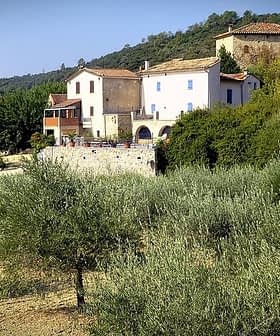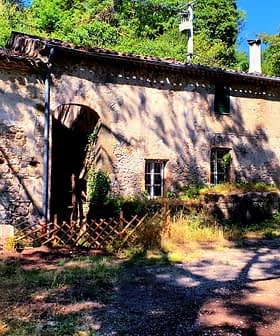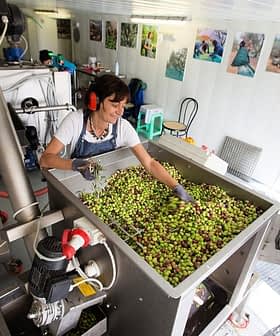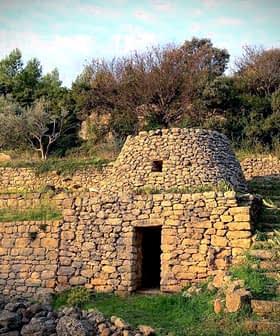French Olive Sector Calls 2016 Harvest 'Catastrophic'
At its general assembly, the president of the French olive grower's association called on members to implement changes or watch the country's olive sector die a slow death.
“Catastrophique” is how the French olive growers’ association is describing the most recent olive season.
According to a report by AFIDOL (Association Française Interprofessionnelle de l’Olive), presented at their general assembly on June 16, the most recent olive crop is expected to reach 3,200 to 3,400 tons, compared to 5,600 last year. This year’s yield amounts to the same quantity harvested in 2000.
Why hasn’t any French technician been able to propose changes with regard to pruning, irrigation, and fertilization?
The report also revealed that between 2005 and 2010, yields came to 5,200 tons on average, while from 2011 to 2016 there was a decrease of 20 percent to 4,000 tons. Furthermore, of an estimated area of 20,000 hectares of olive groves in France, an average of 200 liters of oil is produced per hectare — far behind the 800 to 1,000 liters produced per hectare in Spain or Morocco.
See Also:This Year’s Best French Olive Oils
Climate change, olive fly infestations, aging producers, and inefficient production methods are to blame for the decline. According to AFIDOL’s president, Olivier Nasles, production methods need to be re-examined.
In his introduction to the report, he asserted that things have changed and French olive growers need to up their game: “The world is changing, people are changing, the climate is changing, and we’re not prepared.”
“It’s not just a case of planting in order to produce,” Nasles said, “you have to know how to produce, and this savoir-faire has been partially lost. In 2014, production went down because olive growers did not follow our technician’s recommendations with regard to treatment (against the olive fly). In 2016 (a year of drought), they failed to follow irrigation recommendations.”
In order to move forward and face challenges due to climate change, he tried to drive the message home to members that it was time to change: “We have to move away from the attitude of ‘we’ve always done things this way,’ ” he emphasized.
“How can it be that for the past three years there isn’t one French technician who was able to tell us clearly why some producers are able to produce 700 to 1,000 liters per year while the majority scrapes by with only 200 liters? Why hasn’t any French technician been able to propose changes with regard to pruning, irrigation, and fertilization?”
In an interview with France Bleu, he evoked other reasons for a decline in production and warned of France’s decline in competitiveness compared to its olive-growing neighbors: “We’re losing our savoir-faire because the younger generation does not want to work like their parents and grandparents did… We have to improve productivity otherwise Provence’s olive industry will disappear… We are losing our competitiveness compared to countries where the olive industry is thriving, like Spain, Portugal, Tunisia, Morocco.”
‘Ambassadors’ make you think that it is easy to make olive oil. Well, no, it’s not simple.
French olive oil expert and NYIOOC panel leader, Fabienne Roux echoed Nasles’ points. “Producers who must evolve in their production techniques to achieve productivity, which is the first indispensable link in the economic profitability of the sector,” Roux told Olive Oil Times. “An amateurism is very present in Provence…everyone improvises production and milling. ‘Ambassadors’ make you think that it is easy to make olive oil.”
“Well, no, it’s not simple,” Roux said. “It is necessary to resume everything at the base and train a new generation olive growers, responsible and ambitious and professional. It must be done seriously and urgently. Nothing can be done without the common will of the institutions, the public authorities and the private associations that work on a day-to-day basis.”
Indeed, French olive producers’ frustration is exacerbated by the fact that other countries have been able to increase production in recent years. Compared to other olive-producing countries, France has a tiny olive industry, with 65 percent of olive production concentrated in the region of Provence-Alpes-Côte d’Azur.
Last year, southern France experience a period of drought and part of the expected crop was lost as a result.
Equally “catastrophique” are French olive oil prices which are expected to rise for households to as much as €25 per liter.








